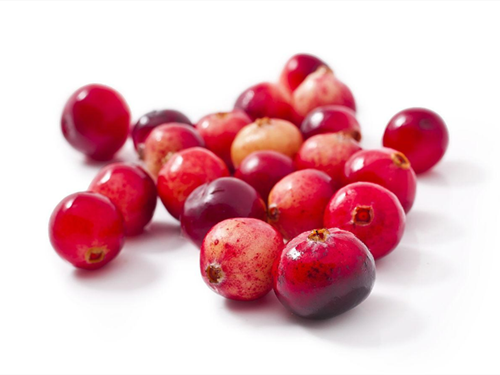Why is Cranberry Good For Pet’s Urinary Tract Infections?
Known as a powerful antioxidant, cranberry extract has been the home remedy to prevent and treat urinary tract infections (UTIs) by holistic veterinarians in Europe, Asia, and North America in recent years. You may often see cranberry-containing products advertised or marketed under terms such as “urology” or “urology.” But what is the real point of cranberries? Does it really solve your cat or dog’s urinary problems? Or the marketing slogan of the business?
Cranberry extract has been found to be effective in reducing the incidence of bacteriuria. It is thought to inhibit E. coli’s ability to attach to the bladder and uroepithelial cells. It may also encourage the formation of healthy urine flow. A study published in the American Journal of Veterinary Research looked at a cranberry product’s effects on canine UTIs. They found that the supplement lowered the incidence of UTIs by approximately 35%. A 1984 study revealed why cranberries might help treat urinary tract infections. The study found that the urine of people (and then mice) who drank a cocktail of cranberry juice prevented E. coli bacteria from sticking to the cell lining to reproduce. A 2007 study showed that it is the proanthocyanidins (PAC) in cranberries (and other berries, including blueberries) that are responsible for cranberries’ “anti-adhesion” properties, which help prevent bacteria from adhering to the urinary tract walls. They also may reduce the amount of E. coli that can bind to the bladder uroepithelium. It’s believed that cranberry can also help the kidneys metabolize weakly alkaline drugs more quickly, which can also help prevent UTIs. So… Can cranberries help prevent and treat UTIs in humans or pets?
The answer is not necessarily because cranberries only lower the urine pH (which is acidic) to stop the growth of bacteria, but UTI is a systemic disease and changing your pet’s urine pH without diagnosis or full understanding of their illness can be dangerous. It may also cause the following risks:
- Oxalate – Cranberries contain compounds called oxalates, which can worsen the condition of your dog or cat if they already have symptoms such as kidney stones (oxalate crystals).
- Vitamin C- Many urinary tract supplements also contain vitamin C, which can be added to make urine more acidic. While this can make the urinary environment less conducive to bacterial growth and infection, it can also increase the risk of calcium oxalate crystals and stone formation. In addition, vitamin C (ascorbic acid) produces oxalates when broken down in the body, which further increases the risk of oxalate crystals and stones forming in the urethra. This study shows that people who take high levels of vitamin C have an increased risk of oxalate kidney stones as the amount of oxalate in their urine increases.
- Xylitol – Some people even recognize xylitol as an effective treatment for UTI. While xylitol is safe for humans, it is toxic to dogs!
But there is no denying the powerful effect of cranberries. Although cranberry products have not been statistically proven to be superior to antibiotics for UTIs, they have not been statistically proven to be inferior to antibiotics for UTIs either. That means “cranberry products” may be at least as effective as antibiotics in treating UTIs. Still, we must remember that this effect has only been studied and demonstrated in urinary tract infections of certain strains of a specific bacteria (E. coli). This bacteria is found in almost all dogs and causes infections. The symptoms of urinary tract infections in dogs can include irritability, licking before urinating, and blood in the urine. In addition, dogs may strain or cry out when urinating. Symptoms of urinary tract infections in dogs can vary depending on the underlying cause of the infection. Typically, dogs suffer from UTIs due to bacteria. The main bacteria that cause urinary tract infections in dogs is E Coli. If left untreated, UTIs can cause inflammation and damage to the bladder and kidneys.
Side effects of cranberry supplements for your pets
Whether you’re looking for a natural way to keep your dog healthy or help treat symptoms, cranberry supplements for dogs can be beneficial. The cranberry proanthocyanidins may help prevent UTIs and also help reduce inflammation in the bladder and help fight off illnesses. However, it’s best to avoid cranberry products as a replacement for prescribed medications, because they have not been approved by the FDA for medicinal use. You’ll want to make sure that you choose a product that has been specifically formulated for dogs. Using a product that is not formulated for dogs may increase the risk of oxalates in the dog’s urine, which can lead to kidney stones and other health problems. You should also be aware that cranberry may increase the risk of kidney stones, especially in patients with a history of oxalate calculi.
Several studies have been done on cranberry supplements for dogs, but the results may vary from animal to animal. If your pet has a UTI, it is important to visit your veterinarian, he or she will determine whether your dog needs antibiotics and how long you should take them.




